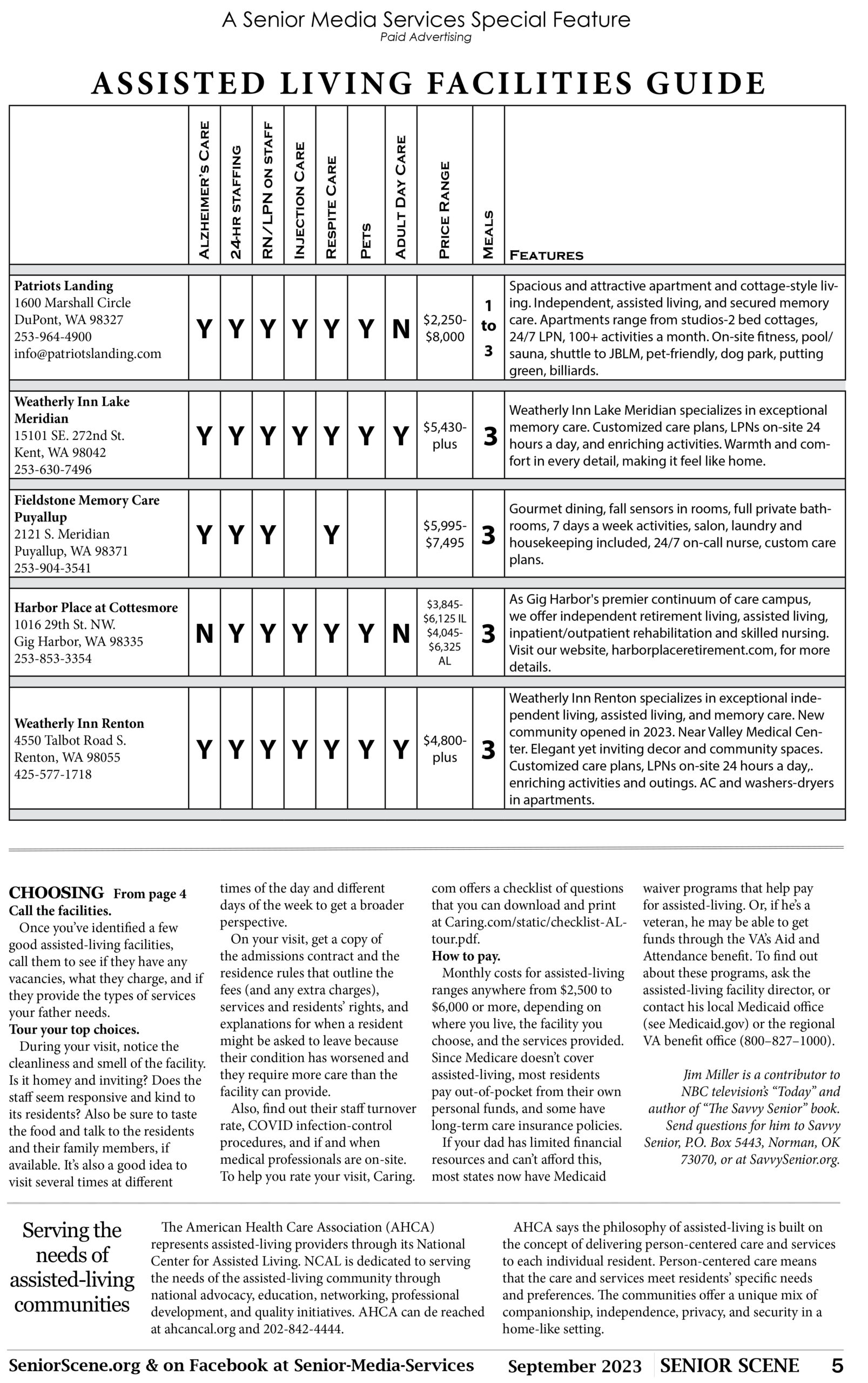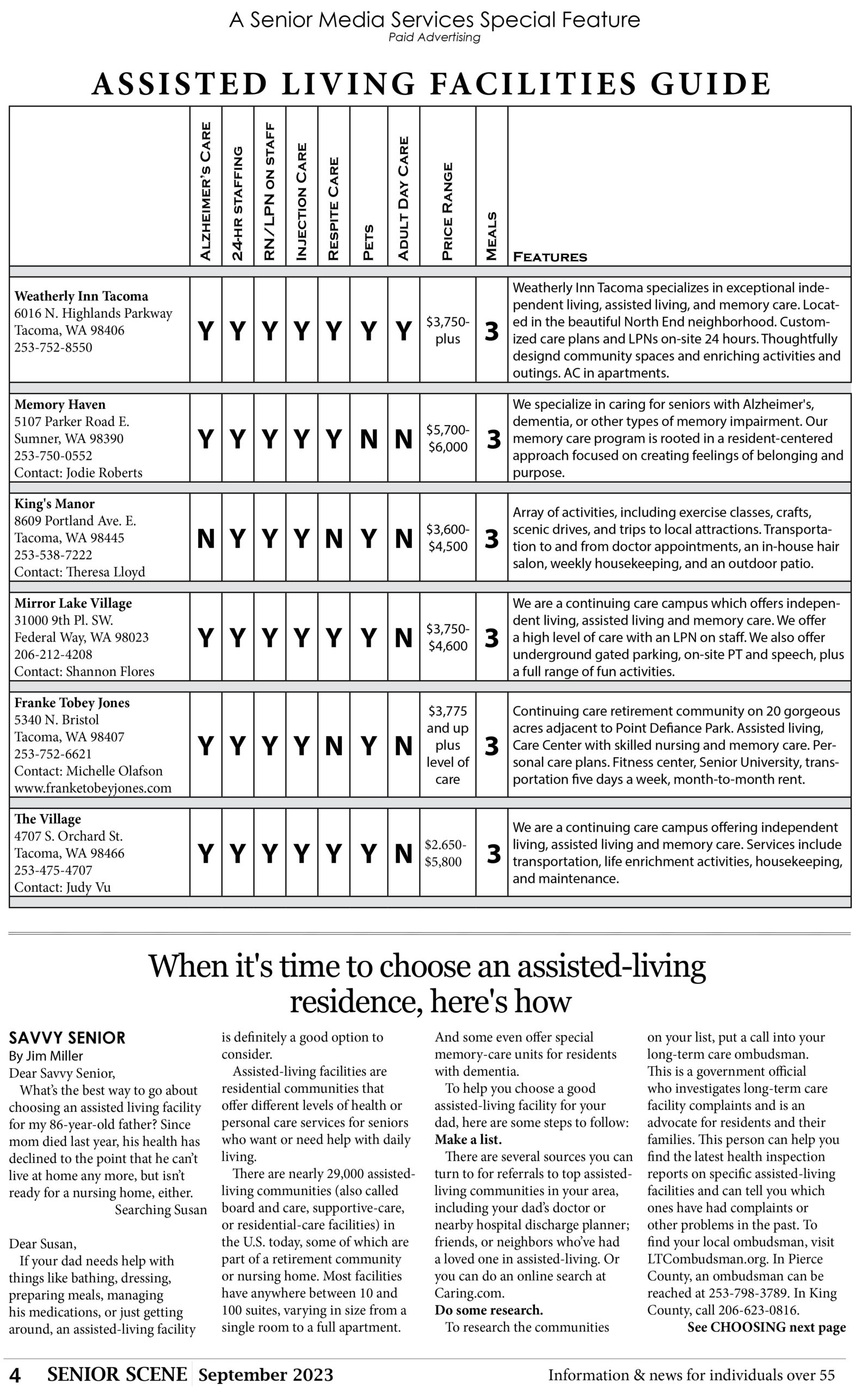Click the images for pdf file of Assisted Living Guide.


Assisted Living What to Look For
Generally, people make housing decisions when it becomes apparent that a loved one needs assistance with basic activities of daily living, sometimes referred to as ADLs by healthcare professionals. ADLs include bathing, grooming, dressing, feeding, homemaking etc. They are the things we normally do in our day-to-day existence. When it becomes apparent that one or more of those ADLs is compromised, Assisted Living facilities offer individuals and families a place with many of the same characteristics of independent living with some assistance to perform those daily tasks. Most Assisted Living facilities provide laundry, housekeeping and meals, much like living in a hotel except personal items decorate your space and you know all your neighbors. Also like a hotel, residents are offered social activities such as trips, classes, exercise programs, libraries, gaming areas and chapel. Some offer spas, bistros, hair salons and even ice cream shops.
For individuals considering moving to an assisted living facility, there are some important questions to keep in mind before moving. We have tried to answer some of those questions with the directory below. Questions you might want to ask before a move include:
- Does the facility offer more care options later on if the resident experiences additional decline? Some places offer continuum care options that may or may not require the resident to eventually move depending on level of care.
- Is the facility close to friends, church, shopping, and medical facilities?
- What’s included in the basic price? What other services do they provide and at what cost?
- What programs/activities do they offer?
- What are the dining options? Can you try out a meal at the facility? Are meals available when the potential resident is usually hungry? Does the dining facility feel friendly or cliquish?
- Their record of care? Washington state has legally recognized the elderly as vulnerable adults and as a result has built additional protections into required treatment at assisted living facilities. Contact the Department of Social and Health Services (DSHS).